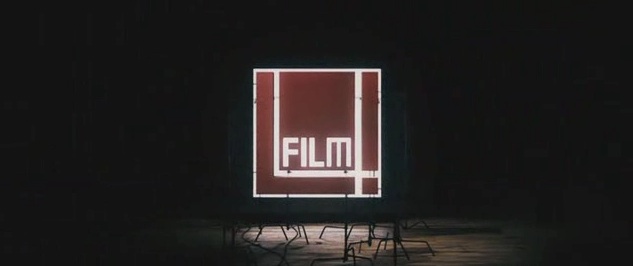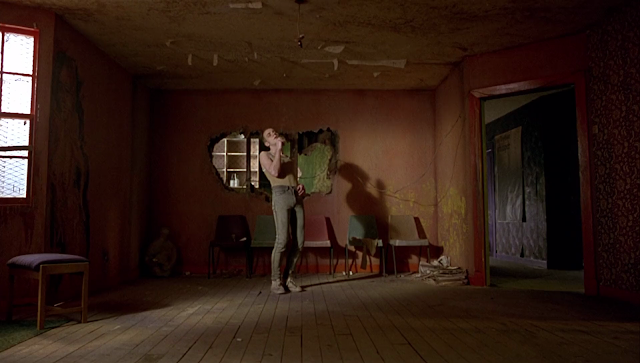The Institutional Contexts of Trainspotting
To gain a deeper understanding and appreciation of a film like Trainspotting, it is important to explore the institutional contexts under which it was produced, distributed (including marketing) and exhibited. Crucial to understanding a film's institutional context are areas associated with finance and it is worth considering the following:
- How was the film financed?
- How much money did it make at the box office?
- What was the return on its investment?
- What was the budget for marketing the film and what form did that marketing take?
- How was the film distributed?
Trainspotting was made by Channel 4 Films. This company, that has a long track record of co-producing some of the most critically and commercially successful British films of all time, was renamed in 2006 as Film4 Productions - and Film4 is the name of the company's TV film channel (a channel that still shows a high percentage of British films as part of its catalogue).
Film4 is still a pivotal producer of films in the UK and their back-catalogue, stretching back to 1982, is also a catalogue of UK cultural attitudes and interests. The subject matter of films produced by Channel 4 Films and Film4 are often controversial and leftfield (typical of British cinema rather than what audiences may expect from safer, more mainstream, Hollywood movies), though some of these films have still achieved relatively mainstream success. This is the case with Trainspotting which for a film made on a budget of £1.5 million generated £48 million at the worldwide box office upon its release (over 30 times its production budget, a ratio that barely any Hollywood movies ever achieve).
The film's producer, Andrew Macdonald worked with Miramax (who distributed the film in the US) to help market the film as a British Pulp Fiction. Mirimax flooded the market with a series of posters, postcards, books, soundtrack albums and even a revamped music video for one of the film's iconic tracks, 'Lust for Life' by Iggy Pop, which was directed by Danny Boyle himself. Polygram Filmed Entertainment, responsible for the film's international distribution (excluding the US), launched a publicity campaign that cost £850,000 in the UK alone, over half the cost of the film's production budget. This marketing practice is much closer to the Hollywood model, suggesting that one of the reasons for the success of Trainspotting at the box office was the adoption of promotional spending that was far removed from the norm for British of European films.
Instrumental to the marketing of Trainspotting was the release of two soundtrack albums, both best-selling albums that captured the spirit of the film and reflected the interest in British musical artists in popular culture in the 1990s. The first album was a playlist of songs featured in the film whilst the second album included those left out from the first soundtrack and extra songs that inspired the filmmakers during production. The soundtrack album for Trainspotting has gone on to become a pop culture phenomenon. Nearly all of the score for the film is pre-recorded music from existing artists, divided into three distinct groups all representing a different era and styles. The first group of tracks feature songs from the 1970s by artists such as Lou Reed ('Perfect Day') and Iggy Pop ('Lust for Life') - both artists closely associated with drug use and artists who are repeatedly referenced throughout the source novel. The second group of tracks consist of music from the Britpop era of the 1990s, featuring tracks by bands such as Pulp ('Mile End'), Blur ('Sing') and Elastica ('2:1'). The final group consists of dance music, reflecting the influence of rave culture and a shift in the types of recreational drugs that became synonymous with the period, featuring artists such as Bedrock ('For What You Dream Of'), Ice MC ('Think about the Way'), Goldie ('Inner City Life') and Underworld ('Born Slippy').
Trainspotting was screened, out of competition, at the 1996 Cannes Film Festival (a prestigious film festival known to champion British and European arthouse films rather than big budget Hollywood blockbusters) and proved to be a critical and popular hit. The film was released in Britain on 23rd February 1996 and by the time Trainspotting opened in the US on 19th July 1996 it had already made more than $18 million in the UK. It initially opened on 8 screens in America (a semi-exclusive release pattern typical of low budget independent non-Hollywood arthouse films; by contrast, recent Hollywood blockbuster Aquaman opened on 4125 screens in North America and 604 in the UK) before expanding it's release to 357 screens. Trainspotting grossed over $16.5 million in the US, making it the most successful independent release in the US in 1996. Trainspotting was the highest grossing British film of 1996 and, at the time, it was the 4th highest grossing British film in history.
For more information on the film's institutional context and the differences between the ways in which British films and Hollywood movies are produced, you may find it useful to re-read the post on British Film and Trainspotting:
Danny Boyle, the film's director, is one of Britain's highest profile filmmakers, a director in television and film as well as a producer (suggesting that he has a large degree of creative control over the films he makes). His film work includes the worldwide smash hit Slumdog Millionaire (2009) for which he won, as director, one of its eight Oscars (the movie grossed nearly $378 million from a $15 million budget).
In making his first feature film, Shallow Grave (1995), Boyle put together a team of actors and filmmakers, many of whom would go onto make Trainspotting. The two films share the same director, cinematographer, editor, writer, producer, production company, UK distributor and actors Ewan McGregor, Peter Mullan and Keith Allen. The latter appears in both films as the same drug dealer and Trainspotting acts as the prequel to his character's eventual death in Shallow Grave. Boyle's status as a national arts icon was cemented when he successfully directed the staging of the 2012 Olympics which took place in the UK.
Questions in the exam could focus on the ways that the content of the film is influenced by its production context BUT even if the focus of the question is not on the film's production, the information above may prove useful as part of an introduction OR sprinkled throughout your essay at relevant points. A question focusing on the importance of sound, for example, may be enhanced by discussion of the film's soundtrack OR a discussion of the film's mise-en-scene, representations or aesthetics may benefit from inclusion of information about Channel 4 Films and the film's budget.
Questions in the exam could focus on the ways that the content of the film is influenced by its production context BUT even if the focus of the question is not on the film's production, the information above may prove useful as part of an introduction OR sprinkled throughout your essay at relevant points. A question focusing on the importance of sound, for example, may be enhanced by discussion of the film's soundtrack OR a discussion of the film's mise-en-scene, representations or aesthetics may benefit from inclusion of information about Channel 4 Films and the film's budget.









Comments
Post a Comment